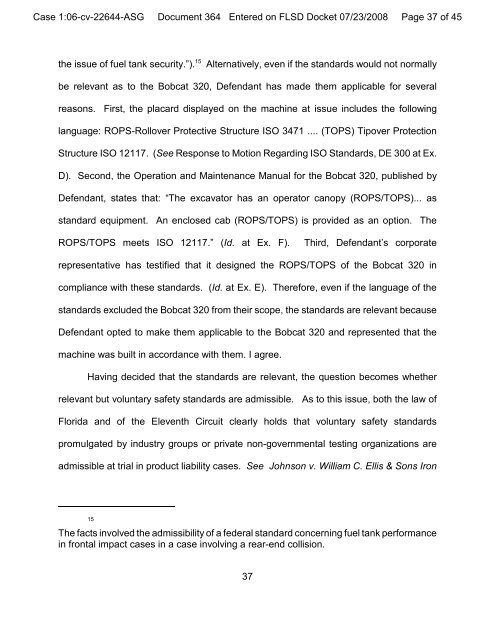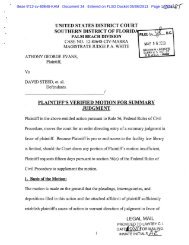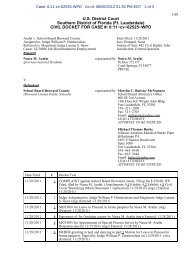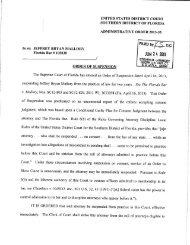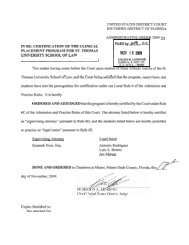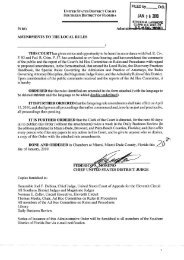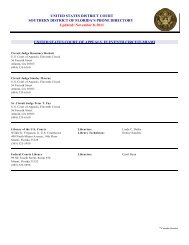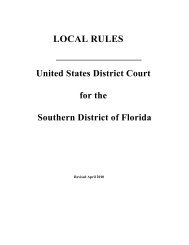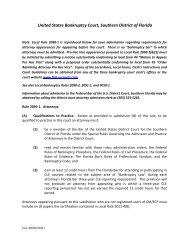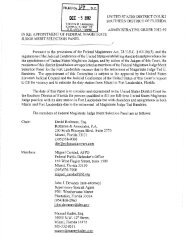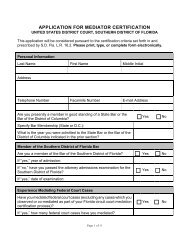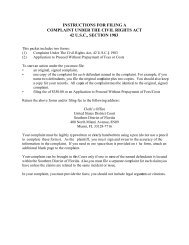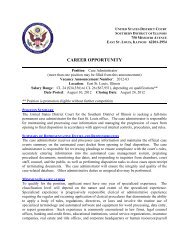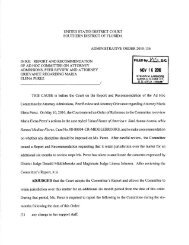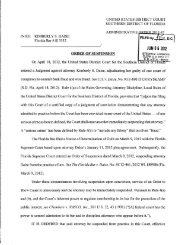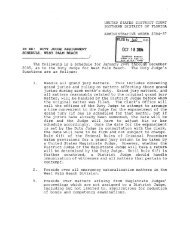Motion in Limine - United States District Court
Motion in Limine - United States District Court
Motion in Limine - United States District Court
You also want an ePaper? Increase the reach of your titles
YUMPU automatically turns print PDFs into web optimized ePapers that Google loves.
Case 1:06-cv-22644-ASG Document 364 Entered on FLSD Docket 07/23/2008 Page 37 of 45<br />
15<br />
the issue of fuel tank security.”). Alternatively, even if the standards would not normally<br />
be relevant as to the Bobcat 320, Defendant has made them applicable for several<br />
reasons. First, the placard displayed on the mach<strong>in</strong>e at issue <strong>in</strong>cludes the follow<strong>in</strong>g<br />
language: ROPS-Rollover Protective Structure ISO 3471 .... (TOPS) Tipover Protection<br />
Structure ISO 12117. (See Response to <strong>Motion</strong> Regard<strong>in</strong>g ISO Standards, DE 300 at Ex.<br />
D). Second, the Operation and Ma<strong>in</strong>tenance Manual for the Bobcat 320, published by<br />
Defendant, states that: “The excavator has an operator canopy (ROPS/TOPS)... as<br />
standard equipment. An enclosed cab (ROPS/TOPS) is provided as an option. The<br />
ROPS/TOPS meets ISO 12117.” (Id. at Ex. F). Third, Defendant’s corporate<br />
representative has testified that it designed the ROPS/TOPS of the Bobcat 320 <strong>in</strong><br />
compliance with these standards. (Id. at Ex. E). Therefore, even if the language of the<br />
standards excluded the Bobcat 320 from their scope, the standards are relevant because<br />
Defendant opted to make them applicable to the Bobcat 320 and represented that the<br />
mach<strong>in</strong>e was built <strong>in</strong> accordance with them. I agree.<br />
Hav<strong>in</strong>g decided that the standards are relevant, the question becomes whether<br />
relevant but voluntary safety standards are admissible. As to this issue, both the law of<br />
Florida and of the Eleventh Circuit clearly holds that voluntary safety standards<br />
promulgated by <strong>in</strong>dustry groups or private non-governmental test<strong>in</strong>g organizations are<br />
admissible at trial <strong>in</strong> product liability cases. See Johnson v. William C. Ellis & Sons Iron<br />
15<br />
The facts <strong>in</strong>volved the admissibility of a federal standard concern<strong>in</strong>g fuel tank performance<br />
<strong>in</strong> frontal impact cases <strong>in</strong> a case <strong>in</strong>volv<strong>in</strong>g a rear-end collision.<br />
37


